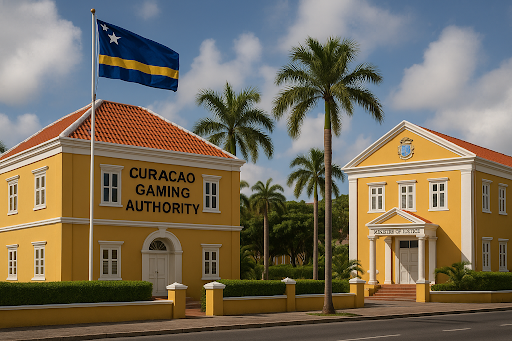Curaçao Gaming Authority Board Resigns, But Regulation Continues

Curaçao’s ongoing gambling reform has encountered a new challenge after the entire Supervisory Board of the Curaçao Gaming Authority (CGA) stepped down in mid-September. The resignation of commissioners Shelwyn Salesia, Robert Reijnaert, and Ildefons Simon leaves the newly formed regulator temporarily without oversight, just months after its formal establishment under the island’s modernized gambling framework.
Political and Administrative Uncertainty
The development sparked speculation about internal tensions within the government after reports suggested that Prime Minister Gilmar Pisas had assumed control of the CGA. The regulator, which officially replaced the former Gaming Control Board (GCB) in July 2025, was created to oversee the island’s licensing process under the new Landsverordening op de Kansspelen (LOK) law.
Local reports from the Curaçao Chronicle indicated that Pisas met privately with the CGA’s management team to discuss gambling-sector issues shortly after the board’s resignation. Minister of Finance Javier Silvania, who had previously overseen the authority, did not attend the meeting—an absence that fueled questions over who was now directing the regulator’s operations.
The timing coincided with growing political pressure on Silvania, who has faced intra-party disputes and allegations of misconduct within the ruling MFK government. Opposition leaders have since called for greater transparency regarding the regulator’s chain of command and the implementation of the LOK reforms.
Government Clarifies Oversight Under Justice Ministry
In response to the confusion, the Government of Curaçao released a clarification on October 14 confirming that official responsibility for the gaming sector now falls under Minister of Justice Shalten Hato, not the Prime Minister’s Office. The transfer of authority was enacted on August 19, 2025, as part of the structural changes introduced by the LOK.
The Justice Ministry now oversees all gaming supervision and regulatory enforcement, replacing the Ministry of Finance’s previous mandate. The shift, according to government officials, reflects the LOK’s emphasis on compliance and anti-illegal gambling measures over financial administration.
CGA Confirms Operations Remain Stable
The CGA formally acknowledged the resignation of its board in an October 15 statement but reassured that “operations continue uninterrupted.” It said that the process to appoint new members had already begun and that licensing, supervision, and LOK implementation activities would proceed without disruption.
“The Curaçao Gaming Authority remains dedicated to safeguarding the integrity and reliability of the gaming industry in Curaçao,” the statement read.
Established originally in 1999 as the Gaming Control Board (GCB), the CGA was restructured under the LOK framework to serve as the island’s primary gaming regulator, responsible for overseeing both online and land-based operations.
Reform Continues Despite Leadership Gaps
The LOK, approved in December 2024, represents Curaçao’s most significant legislative overhaul in two decades. It abolishes the old master–sub-licence system and requires all operators to apply for direct licences under stricter compliance conditions. The law aims to bolster transparency, curb unregulated gambling, and restore international confidence in Curaçao’s licensing regime.
While critics have raised concerns about political instability and administrative disarray, government officials insist that the transition process remains on schedule. The Ministry of Justice is expected to announce new supervisory board appointments in the coming weeks.
For now, the CGA continues its regulatory duties under interim oversight, ensuring that licensing, enforcement, and operator compliance under the LOK remain active during the restructuring phase.
Sources: Curaçao Gambling Authority in Turmoil After Full Board Resignation, World Casino Directory, October 14, 2025








